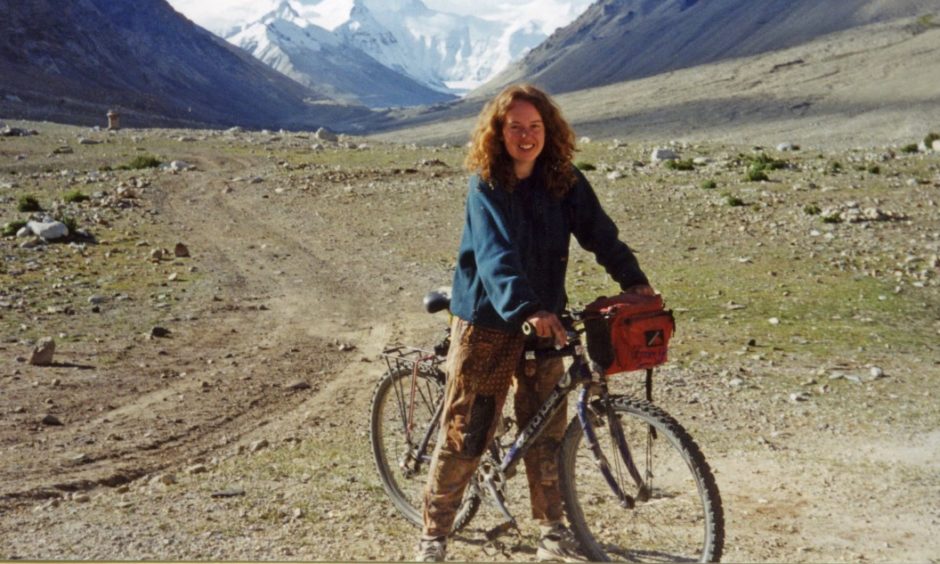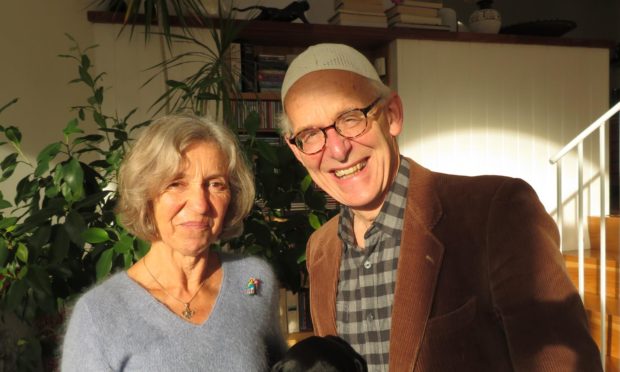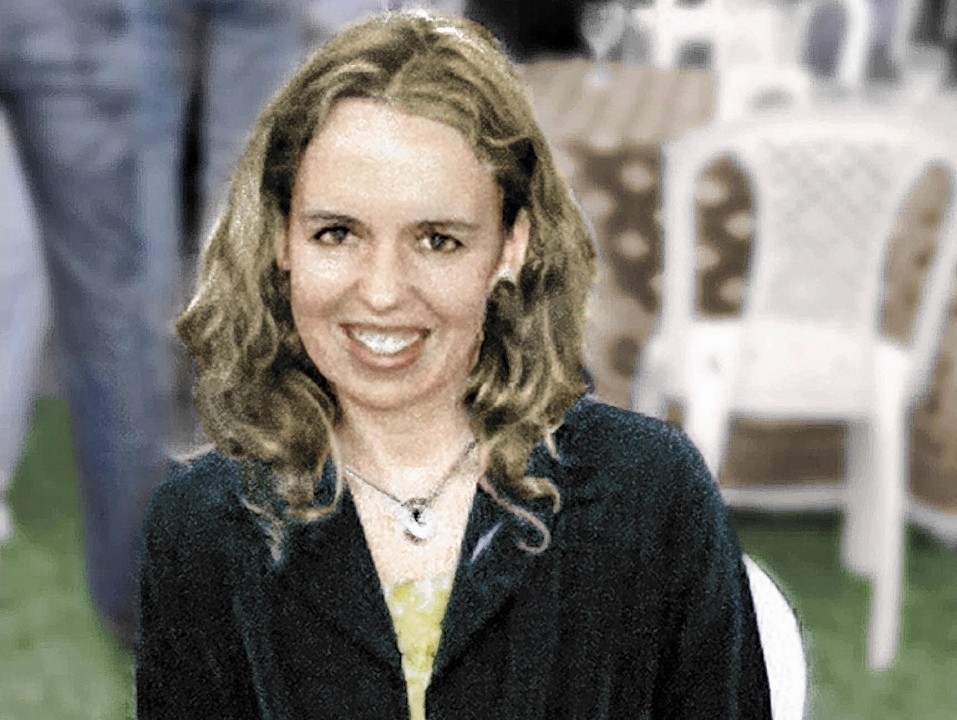The date is acknowledged, but it will not be marked. Instead, John and Lorna Norgrove will spend the tenth anniversary of the death of their daughter working in her name to improve the lives of women and children in the country where she died.
Linda Norgrove was abducted while working as an aid worker in Afghanistan and was killed by a grenade on October 8 2010, aged 36, during a rescue operation by US forces.
The lawless and volatile environment where Ms Norgrove dedicated her considerable talents to helping people in one of the poorest countries in the world is as far removed as is imaginable from the idyllic setting of Mangersta in a remote part of Lewis where her parents received the devastating news.
A decade on, the pain of loss is still evident and the anniversary a visitor as unwelcome as the police officer sent to inform them of the outcome they feared ten years ago.
“We are very aware of the date, and all we went through at that time ten years ago, that’s for sure”, said Mrs Norgrove. “It’s not an easy thing to remember, I find it quite difficult.”
“It was a very traumatic time”, her husband adds. “They say time heals things. It doesn’t heal things totally, but as time goes on things change and you adapt.
“Looking back, we were helped by the fact that when Linda was kidnapped we had 13 days locked in our house. When she died it was a huge, huge trauma, but having that period beforehand almost primed us for it in a way.”
A more positive focus for the couple is the tenth anniversary of the Linda Norgrove Foundation which they set up in the days following her death to continue the work she was so passionate about.

In that time it has raised more than £1.5 million to fund more than 80 grass roots projects to better the lives of Afghans and receives and provides as much support as ever.
“I find it very moving that people still get involved in things we are organising, that they still remember and give their support”, said Mrs Norgrove.
Among their many roles, Mr Norgrove, 70, takes charge of programme managers and projects in Afghanistan and also writes the charity’s newsletters. Mrs Norgrove, 72, looks after fundraising in the UK, the foundation’s accounts and its donors and sponsors.
“We decided very quickly after Linda’s death (to establish the foundation)”, said Mr Norgrove. “We got so much publicity at the time we thought that if we were quick and got it up and running we could use that to get donations.
“It was fairly full on at the beginning and we had no idea how it would turn out, but one of the first things we did was send a message to people that this wasn’t just going to last six months.
“However, I don’t think either of us seriously envisaged that we would be doing more things now than we were seven or eight years ago. We didn’t see it expanding and going on like this. It’s been remarkably stable over the period.
“But we are now getting to a situation where we will need to reduce our workload and employ somebody part time, although it would need to be the right person.”
The Norgroves take enormous pride and satisfaction from the foundation achievements. Support programmes particularly target women and children affected by decades of conflict in a country where there are 1.5 million widows, accounting for a fifth of the adult female population.
“The really satisfying bit is on a personal level, getting help to women and getting feedback from programme managers who tell us stories of people we are helping with scholarships”, said Mrs Norgrove.
“There are women who might well have been forced into an arranged marriage if they had not got a grant from the foundation. The change brought into someone’s life due to the grant is huge. They could disappear into a compound, not getting out on their own for the rest of their lives.
“The alternative is getting a scholarship from us and have a chance to form a career for themselves and educate their own children. So it’s really a transformational change for some women and it’s great to know we have been able to help people in that situation.”
She said they were particularly keen to sponsor Afghan women to study medicine and nursing as so many females are not allowed to be seen by male doctors.
“Women die from treatable diseases because they can’t be seen by a male doctor. So it seems so important to be able to help and change that situation a bit.
“I think Linda would be proud of what we are doing. She was always telling her male colleagues to send their daughters to university, she was very keen on education for women and help them in any way she could.”
Coronavirus has this year prevented Mr and Mrs Norgrove visiting Afghanistan, where they usually spend an intensive week every two years despite security fears and the concerns from their other daughter Sofie.
Mr Norgrove said: “When the Covid-19 crisis is over we will go out again, although our other daughter is not keen on us going. It can be quite risky – we maybe took more risks when we were younger, but we are more risk averse these days.”
Visiting Kabul, the couple are driven to pre-arranged meetings and never walk on the streets of a city where helicopters circle overhead most the day, car bombs explode sporadically, guards with Kalashnikovs are on the gates of universities and supermarkets have blast-proof doors and armed doormen.
The couple have not directly experienced any violence, but some incidents have left them more wary. Mortars were fired into a park a few hours after they marked Women’s Day; an Afghan woman, who was sharing a flat with one of the Norgroves’ programme managers, was shot dead by security guards at her apartment block and in 2018 a planned visit to a rural area was cancelled after a close colleague of the nurse organising the trip was shot by guards who broke into a dormitory.
Recent peace talks have been held between the Afghan government and the Taliban but the Norgroves are unsure how it may affect their work in the country.
“I honestly don’t know if it will change things if they return”, said Mr Norgrove. “My feeling is the Taliban has to retain local credibility and will lose that if they were to issue an edict saying no women could go to university any more, or there were to be no more women doctors.
“I don’t think they will go down that route, they may make it more difficult for women but I don’t think they’ll stop women getting secondary education.”
However, he said the Taliban is a fractured and unpredictable group: “So you get a situation where the Taliban central control approve education of some women and then there are other Taliban militants burning down girls’ schools. It’s difficult to work out how that will come together if the Taliban do get some power.
“We have sponsored projects in areas controlled by the Taliban or in contested areas. The problem with that is that we cannot put our hands on our hearts and say the money we have given actually gets to the girls.
“Because of that we decided to only work in those areas that we can visit. That way we know that people are receiving the money and how it is spent.”
Foundation provides life-changing support to women and children in Afghanistan
The Linda Norgrove Foundation’s wide-ranging support includes providing school and university scholarships, mobile libraries and clean water and sanitation.
A milestone was reached this spring when the first sponsored student qualified as a doctor. Shahiwar now works at a hospital in her home province of Badakhshan. Another six women have completed their academic studies although their hospital-based practical training has been delayed by the coronavirus pandemic.
The foundation is currently supporting 68 medical scholarships, 27 midwives, 10 nurses and 52 business or economics courses, as well as school scholarships.
This year it has also paid for life-changing surgery for eight girls and three women from poor rural areas.
In addition, it has printed and distributed 5,000 copies of a book of traditional children’s stories, provided funds for a small school in a poor district of Kabul, bought a minibus for a project providing safe public transport for women, funded a midwifery service in remote villages, mounted a Covid-19 campaign and gave groceries and antiseptics to disadvantages families and helped a children’s circus produce and distribute face masks and set up handwashing stations in refugee camps during the pandemic.
This month an annual 10k fundraising run, which previously attracted entries from locations as diverse as Antarctica and Liberia, has to be held virtually due the pandemic. Participants of the tenth 10k are asked to run, walk or cycle during the first ten days of the tenth month of the tenth anniversary.
The foundation also held an Open Water Challenge throughout September with 82 swimmers taking part in various parts of Scotland, London and Vancouver. All money raised in the events will help pay the university fees for Afghan women studying to become doctors.

